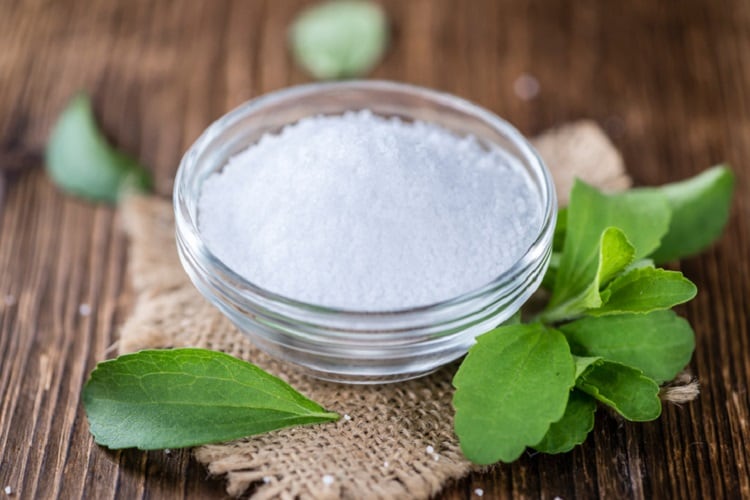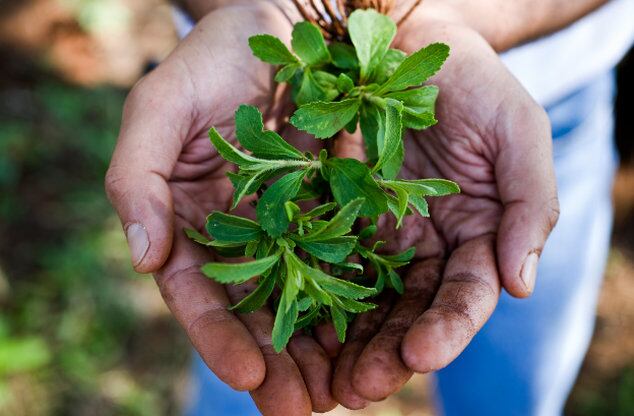Tate & Lyle, in collaboration with stevia supply partner Sweet Green Fields, has teamed with non-government organisation (NGO) Earthwatch to examine the sustainability of its stevia supply chain.
According to the agreement, Earthwatch will assess growing practices and the socio-economic impact of the partners’ stevia supply chain in China, where the companies cultivate the plant.
“Earthwatch is looking at the environmental impacts of stevia and will quantify key aspects of the production system, including impacts on soil, water, waste, and energy use,” Earthwatch’s interim director of corporate partnerships, Maria Pontes, told FoodNavigator.
“The research seeks to identify best practices and develop evidence-based solutions that can help mitigate or eliminate some of the issues identified.”
Stevia
Stevia, a small shrub-like herb native to South America, grows leaves containing sweet compounds steviol glycosides. According to Sweet Green Fields, dried stevia leaves have been used to sweeten beverages, such as mate and tea, as well as foods for centuries.
Stevia extract, which is considered to be 200-300 times the sweetness of sucrose, is attractive to the food and beverage industries for its natural, calorie-free, and zero glycemic load sweetening properties.
Tate & Lyle commissioned the research together with its stevia, and equity, partner, Sweet Green Fields.
The UK-headquartered ingredients supplier announced it had entered into an agreement to take a 15% equity holding in Sweet Green Fields in May last year, in a move to accelerate portfolio development.
According to Tate & Lyle, Sweet Green Fields is the largest privately held stevia supplier globally. “Their industry-leading portfolio of stevia-based ingredients is highly complementary to our portfolio of proprietary sugar reduction solutions…” said Tate & Lyle’s chief executive Nick Hampton at the time.
Growing the market
The global stevia market was valued at US$447m (€397m) in 2016 and is expected to reach $1045m by 2023, with a compound annual growth rate (CAGR) of 12.8%, according to Market Watch.
In the food and beverage industry, the adoption of stevia as a sweetener by soft drinks brands such as Coca-Cola and PepsiCo has helped grow market share, as has rising consumer awareness towards low caloric foods, according to the analysts.
Government initiatives designed to reduce the amount of sugar in processed food and drinks – in an effort to lower obesity and diabetes rates – has also increased stevia consumption.
In the UK, for example, Public Health England (PHE), the body that advises the British government on public health policy for all of the UK, has challenged the food industry to cut sugar in 10 food categories by 20% by 2020. Earlier this month, PHE published supplementary guidance for the sweetened drinking yoghurt category.
Elsewhere in Europe, Germany has similarly called for food manufacturers to voluntarily reduce sugar, fats and salts in processed foods. The strategy includes a request that food manufacturers reduce sugar content in breakfast cereals by 20% and in soft drinks by 15-20% by 2025.
Indeed, sugar reduction has been targeted by governments across Europe via sugar taxes, including in the UK, Portugal and France.
Earthwatch examines the food and beverage sector
While Earthwatch, an NGO that conducts field research to promote environmentally sustainable action, is not new to the food and beverage industry, the study marks its first exploration of the impacts of stevia.
“Earthwatch has a track record of working with businesses, farmers, academics and policymakers to understand the impacts of agricultural production,” Maria Pontes, interim director of corporate partnerships told FoodNavigator.
In 2007, for example, the not-for-profit partnered with Starbucks to promote sustainable farming practices in the coffee-growing region of Los Santos, Costa Rica.
“The partnership evolved to develop new tools and practices to encourage and facilitate more sustainable coffee practices, while linking together the consumer, buyer, and producer dimensions of the supply chain,” according to Earthwatch.





